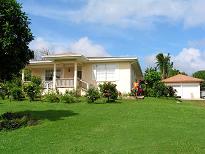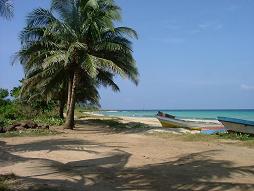|
Corn Islands
General Infos
Maps
For Sale
Sites/Lots
Houses
Condominiums
Commercials
For Rent
Houses
Commercials
Caribbean
Coast
Bluefields
Pearl Lagoon
Mainland
Rivas
Chichigalpa
Owner
listings
Favorite Links
|
Purchasing a Property in Nicaragua
The Documents
You Need:
-
Property
Deed
-
Property
History (Abstract of Title) for the last 25 years. This is obtained from the
Public Registry
-
Property
Map or Survey
-
History of
Property Tax Payments Year to Date
-
Municipal
Tax Payment History
Try To Avoid
Properties That Have:
-
Agrarian
Reform Titles
-
Supplemental Titles Issued by Court Order
Legal
Considerations
-
Check to be
sure the property was not formerly purchase through "Law 85". This law
distributed luxury homes and properties larger than 100 square meters.
-
Check to be
sure the property was not formerly purchased through "Law 86". This law
distributed smaller homes in popular neighborhoods.
-
Check to be
sure the property was not formerly purchased through "Law 88". This law
distributed land to poor people through agrarian reform.
-
Check to be
sure the property was not formerly purchased through "Law 209". This law was
part of modifications to agrarian reform.
-
Check that
the Title and Deed meet all legal requirements.
-
Check to
see that the Title is properly registered in the real estate section of the
Property Registry Office in the city where the property is located.
-
Study the
details and history of the property for the last 25 years in the Real Estate
Property Office.
-
Find out
from neighbors if there are or have been any problems with neighboring
properties.
-
Verify that
the owner is in full possession of the property.
-
Exceptions:
The only secure way to buy property that has been affected by Laws 85, 86,
88 and 209 is to have a Settlement Statement issued by the Territorial
Ordinance Office, referred to as OOT, which is under the supervision of the
Ministry of Finance, and verify that the ordinance is registered in the Real
Estate Property Registry.
Steps to Buying
and Registering Property:
-
Use the
services of a real estate professional to find property that meets your
needs and desires.
-
Get all the
property documentation.
-
Hire a
competent real estate attorney to review the documentation and give you a
legal opinion.
-
Once
verified that the property has no liens or encumbrances, have a notary
prepare a sales agreement.
-
After
closing, have the attorney register the property in the Public Registry. To
be considered the legal owner of property you should possess the property
title which has been properly annotated by the registrar.
Title Insurance
Title Insurance
is readily available on any property which meets the above requirements. First
American Title Insurance Company's Caribbean and Central American Division,
http://www.facm.com/title-caribbean/1000.html will generally insure title to
properties with the above qualifications. The Title Company relies on the legal
opinion of the attorney handling the transaction, and has a list of attorneys
whose opinions they will accept; so the attorney you select to issue the opinion
must be on their approved list. The cost of a title policy is generally about
$500 U.S. for every $100,000 insured.
Other Documents
In addition to
the documents list above, the seller should provide the following:
-
Sellers Tax
ID Number (RUC)
-
Land
Registry Certificate
-
Land
Registry Survey
-
Power of
Attorney (if not the property owner)
-
1%
Withholding Tax
-
Verification that all taxes have been paid to date
-
The buyer
should provide either a RUC number if Nicaraguan or a Passport number.
|







